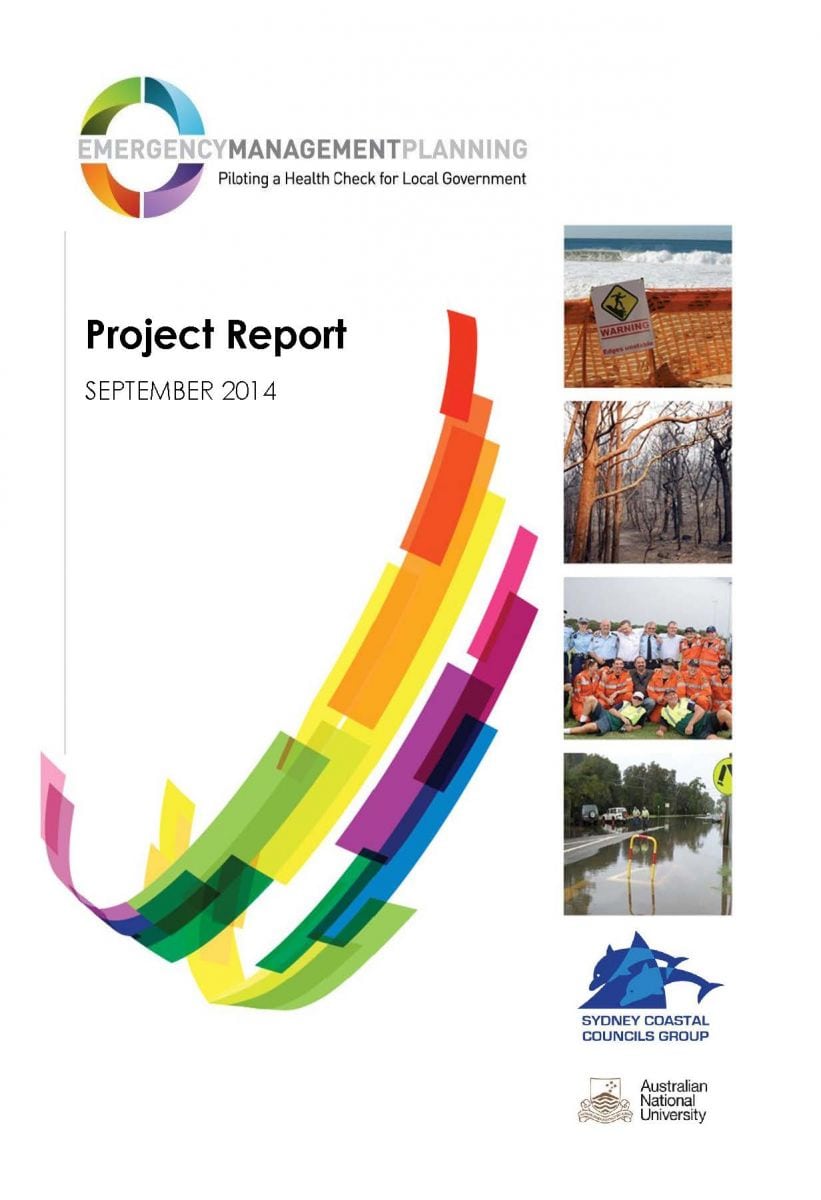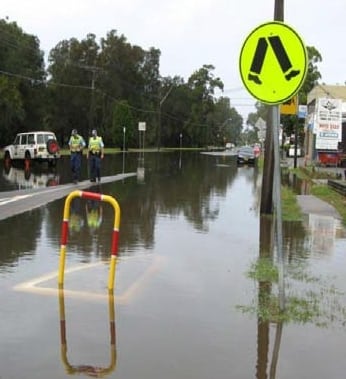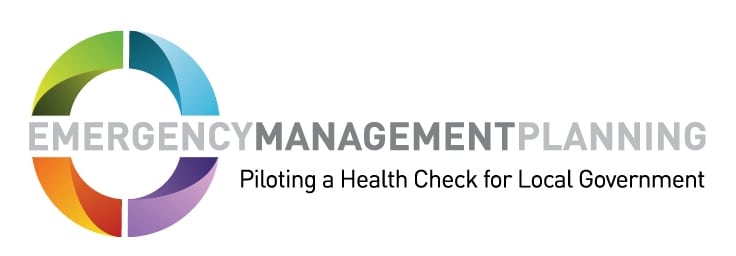Emergency Management Planning: a Health Check for Local Government (EMP Stage 1)
The outputs of the Stage 1 Emergency Management Planning Project are below.

Project Aim and Objectives
By working closely with Local Government and the major combat agencies, the SCCG explored current practice in NSW and reviewed best practice approaches from other States and Internationally. A key element of the project is the building of resilience, both organisationally and within the community, to provide adaptive and flexible responses to emergencies. The project also investigated limitations and opportunities for Local Government practice due to other areas and responsibilities of Emergency Management.
The SCCG engaged with emergency management staff from SCCG Councils and the lead agencies. A Steering Committee with representation from those organisations was established to draw upon viewpoints and needs from all perspectives.
The objectives were to:
- Clarify the roles and involvement of Local Government in Emergency Management
- Engage stakeholders in Emergency Management Planning to define areas of need and to refine the scope and focus of the proposed tool
- Identify information relevant to community engagement and participation in emergency management through structured interviews
- Examine use of resources for Response and Recovery to evaluate efficient and economic use
- Evaluate individual and organisational learning in all phases of Emergency Management
- Identify data to inform future planning and decision-making relevant to emergency management
- Investigate how Emergency Management functions of Local Government are incorporated into the Integrated Planning and Reporting Framework and identify relevant parameters and performance indicators
- Investigate monitoring and evaluation frameworks relevant to Emergency Management
- Develop a tool, the Health Check, which will provide a means to assess the level of emergency management preparedness of Local Government
- Foster uptake of the tool in Local Government by conducting workshops and other means of promotion.
The project has relied on the contributions from Member Councils and other interested councils from across the State. The initial consultation clarified the views of emergency management personnel as the roles of, and the opportunities and challenges for, local government in supporting their communities in dealing with hazards and emergencies.
A workshop in December 2013 clarified the structure of the Health Check in the context of the National Strategy for Disaster Resilience (NSDR). The participants began populating the evaluation questions for each of the “goals” and KPIs, formulated by the group, within the NSDR structure. This information was collated and edited, and circulated for review and correction by attendees before being distributed to all stakeholders and interested councils. Feedback from the councils guided a significant revision of the Health Check, focusing on simplifying the questions and using the KPIs as “prompts” to provide information on the frame and context of the question, and the kinds of actions that could be considered both in evaluation and to progress emergency management within a council. The revised structure has been improved through iterative reviews and support for improved functionality. The Health Check was demonstrated at the Project Launch in September, with ongoing minor revisions to improve outputs for councils.
A revised User Guide accompanies the release version of the Health Check to explain installation, and the options for using the Health Check.
For more information see the Fact Sheet.
An important part of the Health Check will be to provide resources for Local Government to promote learning from the experience of others. The SCCG would be pleased to receive suggestions as to useful publications, policies, plans and procedures that might be adapted by councils seeking to improve their contributions to Emergency Management.
The SCCG is grateful for the funding and support from the Ministry of Police and Emergency Services, and our Advisory Committee with representatives of member councils, universities, OEH, DoPE, DoH, DLG, SES, RFS.



Project Launch
On 17 September 2014, the SCCG launched the project outcomes. A Forum and Panel Discussion featured a keynote presentation by Mr. Phil Koperberg AO BEM AFSM looking at the role of Local Government in emergency management, supported by other speakers who looked at approaches for improving capability and resilience of Local Government in emergency management, supported by other speakers who looked at approaches for improving the capability and resilience of Local Government fulfil their roles in emergency management.
The broad themes that cover the concerns of the participants include:
-
- The need for leadership in emergency management with improved understanding and coordination between agencies and levels of government.
- Clarity on the role of local government in PPRR and local government capacity and capability to respond to large scale emergencies.
- The lack of resources at all levels of government, particularly for Prevention and Preparation, and the implications of the new plans and procedures for local emergency management planning.
- Complacency and lack of commitment to planning between emergencies and the need to support the necessary work to prepare the community and to share responsibility for emergency management planning and to build resilience.
- Co-ordination and communication can work together to inform and engage the community to build resilience. Complacency and different concerns and priorities can undermine clear and consistent messages leading to confusion and apathy.
The Launch Report is available here.




